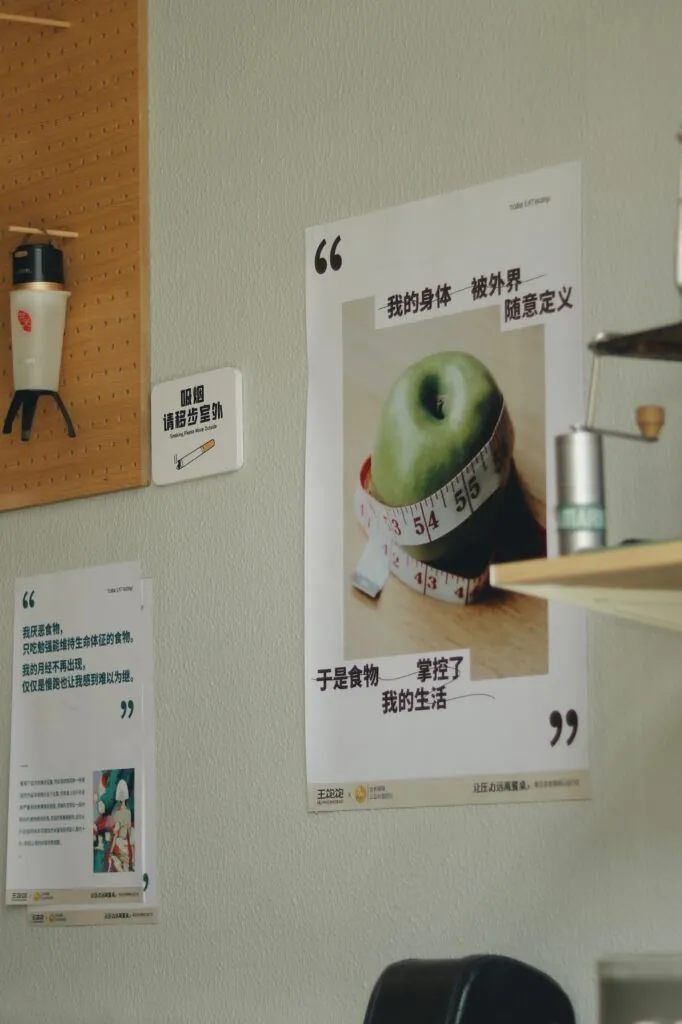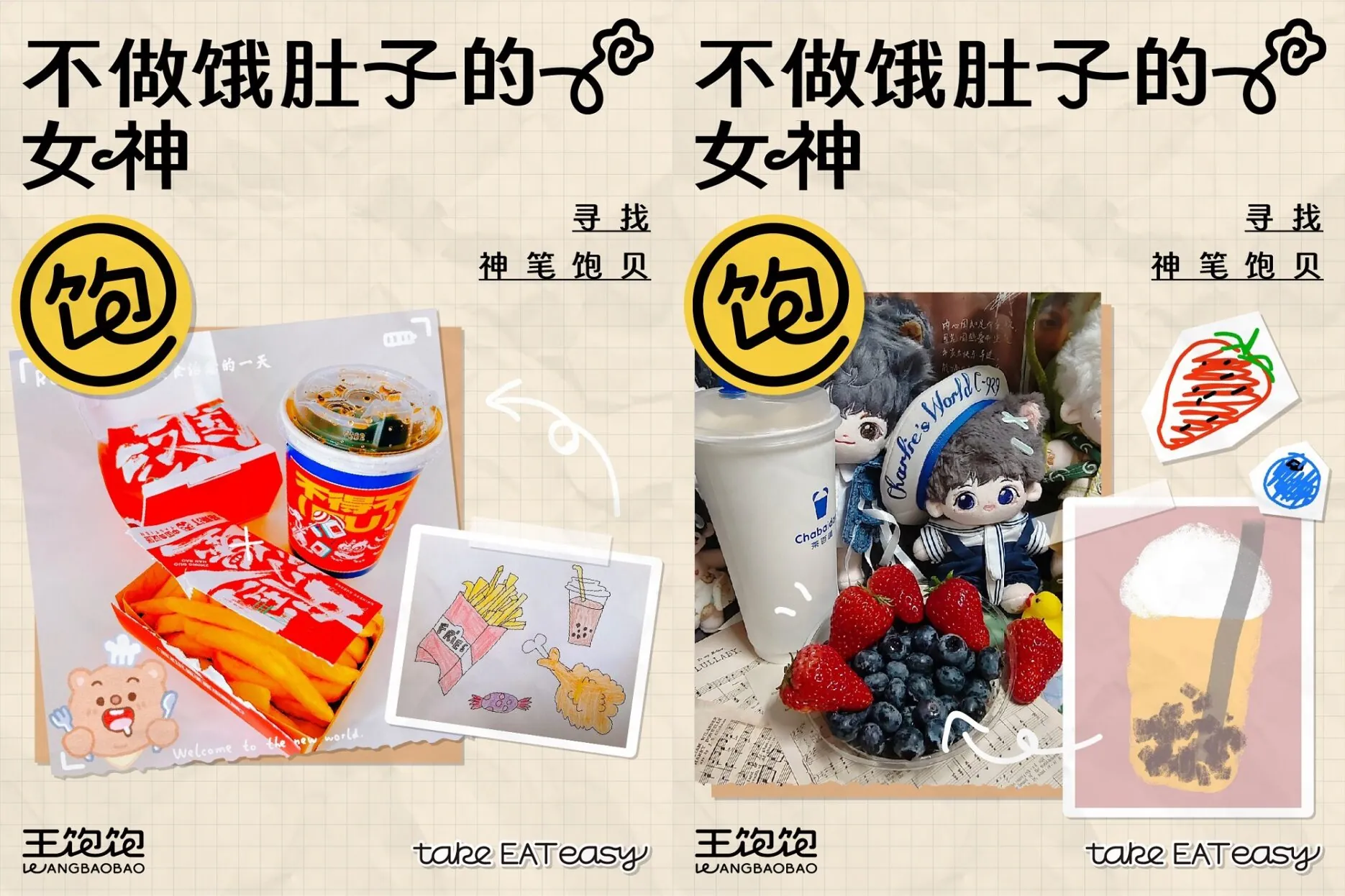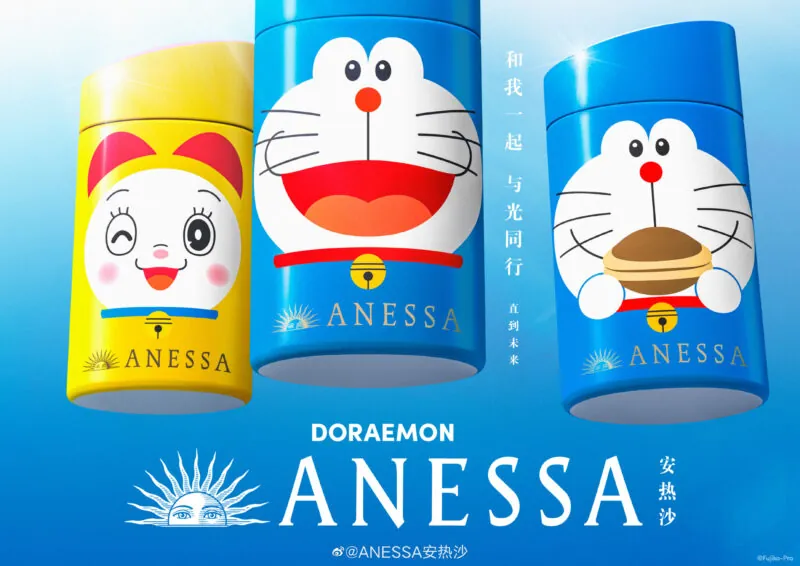Key takeaways:
- Oatmeal brand Wang Baobao launched a campaign “Take EAT Easy” that uniquely focuses on the issue of eating disorders (ED) in China.
- In China, the social pressure on young women to be perfect has become so overwhelming that it has caused an alarming rise in cases of anorexia, bulimia, and binge-eating disorders.
- By presenting the social phenomenon of eating anxiety, the brand gives a voice to those who cannot speak out and offers some solutions for healthy living in the form of offline and ESG marketing.
In a campaign titled “Take EAT Easy”, oatmeal brand Wang Baobao joined hands with an eating disorder public welfare team ED Healers to invite around 10 small shops and cafes in the Hangzhou community to speak out for the action of recognising eating disorders.
During this offline public welfare event, the group ED Healers will present the stories of people with eating disorders and present related scientific information to increase awareness in the community. Additionally, the event aims to create a safe space offline for those willing to discuss their feelings and show their support for the cause.
The event aims to create a safe space offline for those willing to discuss their feelings and show their support for the cause.
The brand even kickstarted its “Take EAT Easy” community group in which members can be the first to know about the latest products, receive benefits, and partake in various activities related to the campaign.
Meanwhile, on Weibo, the campaign gathered steam, with the hashtag “Take EAT Easy” amassing over 2.3 million views and putting a taboo topic into the limelight. Additionally, with over 250,000 followers on Weibo, one of the ED Healers members ‘Girl Goddess’ managed to help increase attention on the campaign, with many netizens expressing their hopes that such an event can expand beyond Hangzhou and also occur in other cities throughout China in the future.




ED Healers is a group of 19 women who have struggled with eating disorders for many years. Since 2020, the team has committed itself to disseminating organised and science-backed information for those who are troubled with eating disorders.
A food-loving culture with strict beauty standards
Eating disorders have become a hidden pandemic in modern-day China. The social pressure on young women to be perfect has become so overwhelming that it has caused an alarming rise in cases of anorexia, bulimia, and binge-eating disorders. Health experts blame China’s social “involution”, or intense social competition, for the toxic beauty standards that encourage extreme weight loss.
The social pressure on young women to be perfect has become so overwhelming that it has caused an alarming rise in cases of anorexia, bulimia, and binge-eating disorders.
According to CGTN, the Shanghai Mental Health Centre reported that eating disorder outpatients grew from 8 in 2002 to over 3,000, in 2020. While detailed data related to eating disorders in China is hard to come by due to the shame and lack of awareness attached to the illness, CGTN found that the number of eating disorder patients in China had increased five-fold over the past decade.
Additionally, in China Youth’s Daily 2021 survey, 72.8% of the interviewed girls expressed their desire to be thinner while only 10.58% of these respondents were truly overweight according to medical standards.
In recent years, there has been an increase in awareness of mental health and body image in China as more women try to push back on the nation’s toxic beauty standards. Additionally, there has been a rise in interest in brands expressing body positivity in order to reach female consumers. However, eating disorders are rarely seen at the forefront of marketing campaigns, which makes Wang Baobao’s campaign so unique.
Overall, by returning to the essence of diet, Wang Baobao focuses on the relationship between people and food. By presenting the social phenomenon of eating anxiety, the brand gives a voice to those who cannot speak out and offers some solutions for healthy living in the form of ESG marketing.









